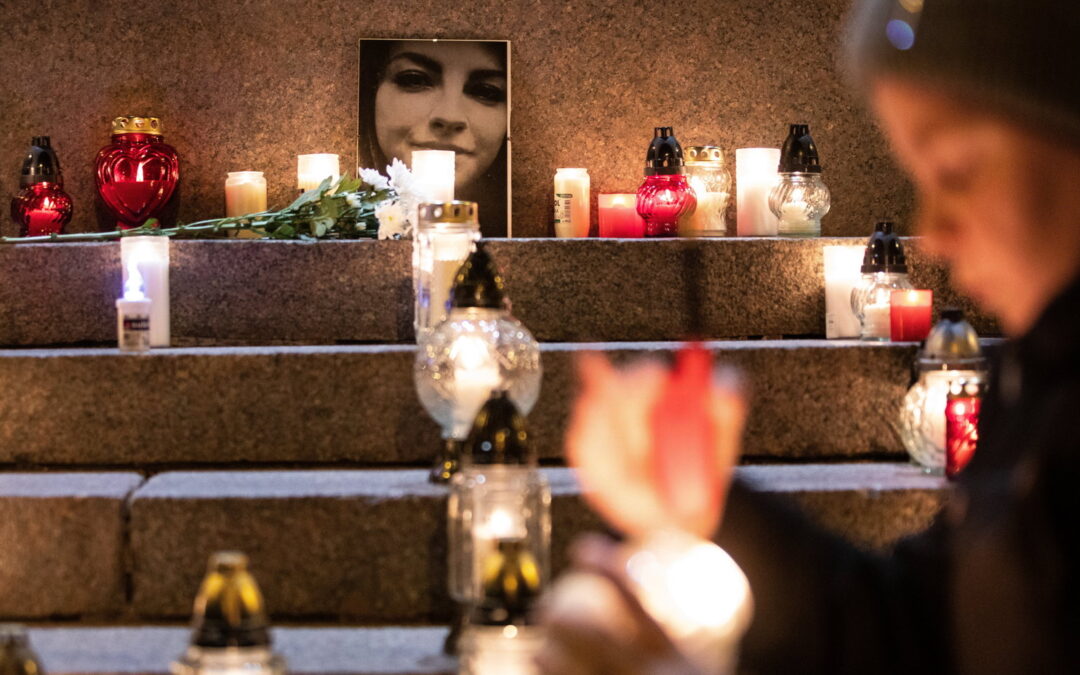Poland’s president, Andrzej Duda, has expressed his regret that widespread protests and mourning have focused mostly on the death of a pregnant woman in hospital, and little on the foetus that she was carrying, which also died.
The 30-year-old woman, named only as Izabela, died of septic shock after doctors delayed removing her foetus, which had been diagnosed with birth defects, until it died. Many have attributed their decision to last year’s introduction of a near-total ban on abortion, though conservatives have blamed medical malpractice.
“I deeply regret that such a situation has occurred, it is an unimaginable pain for the family and suffering for loved ones,” said Duda, speaking alongside his Slovak counterpart Zuzana Čaputová at a press conference. “This is a terrible situation.”
He added, however, that he regretted that “they are only talking about the death of the mother of this child, but unfortunately it is not mentioned that a child also died”. As a Catholic, Duda said, “life is an absolutely supreme value”.
Izabela – who is survived by a husband and daughter – was admitted to a clinic in her hometown after her waters broke. As doctors delayed aborting the 22-week foetus, Izabela wrote messages to her mother saying that she believed it was the recently tightened abortion law that made doctors reluctant to act.
“Thanks to the abortion law, there’s nothing they can do…”
The final messages of a pregnant 30-year-old, whose recent death in a Polish hospital has been blamed on #Poland’s near-total abortion ban, have been made public by her mother. https://t.co/p2fV9nPPKc pic.twitter.com/cS4pJr2Ahw
— Andrew Stroehlein (@astroehlein) November 5, 2021
Her foetus had been diagnosed with severe defects including ventriculomegaly, hypoplastic nasal bone and ventricular septal defect. Izabela also wrote that she was worried for her own life. Soon afterwards suffered septic shock.
Prosecutors are now investigating her death. Duda said on Tuesday that, “as a responsible person”, he recognised that this situation “requires deeper explanation”. But he warned that “public discussion is based on fragments of facts reported by the media”.
The comments echo those of officials from the ruling national-conservative Law and Justice (PiS) party, of which Duda is an ally, who have urged judgements to be suspended until a full investigation of the case.
State television, which serves as a government mouthpiece, has accused the opposition of starting “a political game with a tragic death”.
Duda also reiterated an argument used by conservative figures suggesting that the tragedy had nothing to do with the abortion law, since pregnancies can still be terminated if they threaten the health or life of the mother.
“There is a premise in the Polish legal system that allowed for legal abortion in this situation…Yet the doctors in the hospital in Pszczyna did not perform this abortion. One must answer the question of why this happened,” said Duda.
The health minister has, hinted that doctors treating Izabela may have feared legal repercussions for terminating the abortion. Amid protests attended by tens of thousands of people across many Polish towns and cities, the health ministry issued new guidance to hospitals on treating complications in pregnancies.
Since the news of Izabela’s death came to light, a number of other similar cases of women dying or at risk of death due to doctors’ reluctance to terminate pregnancies have been published in the media.
Main image credit: Jakub Orzechowski / Agencja Wyborcza.pl

Maria Wilczek is deputy editor of Notes from Poland. She is a regular writer for The Times, The Economist and Al Jazeera English, and has also featured in Foreign Policy, Politico Europe, The Spectator and Gazeta Wyborcza.




















